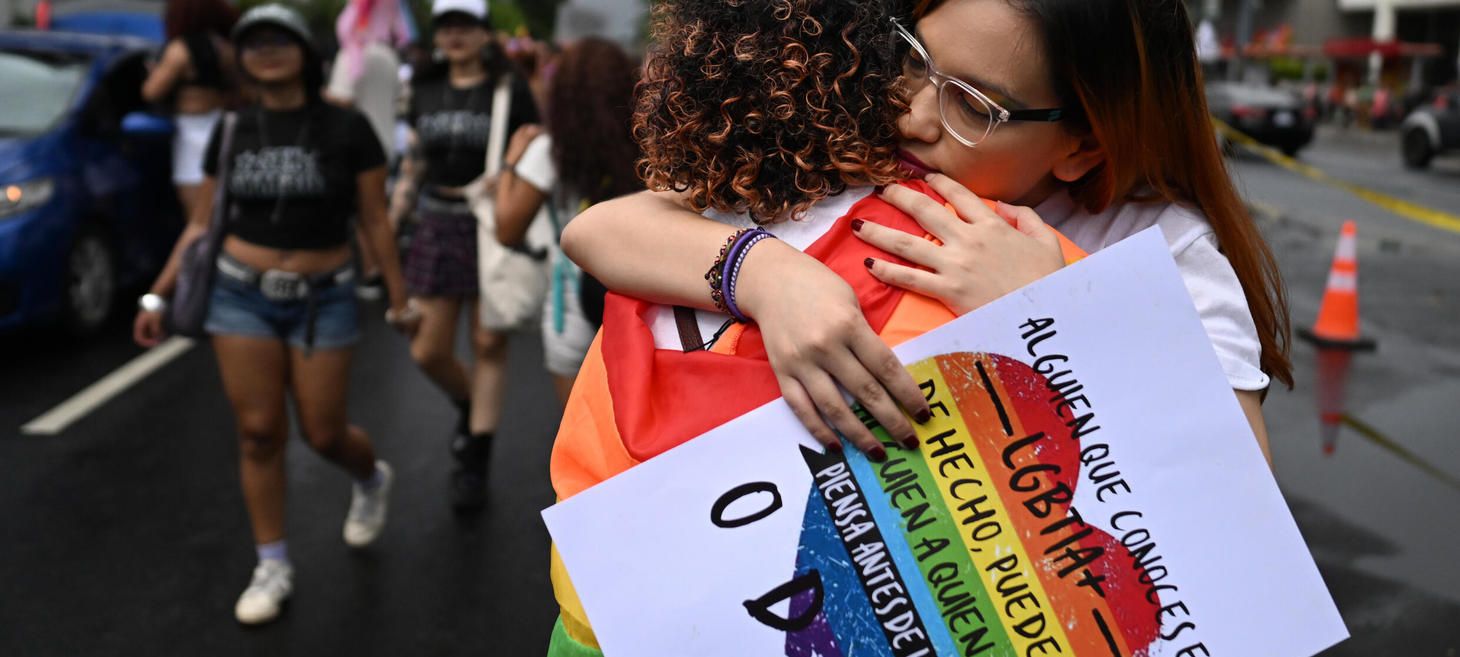Issue Highlights
Joy in Namibia as court decriminalizes gay sex
Court ruling drops the total of nations outlawing gay sex to 64
Ten Questions for Saida Agostini-Bostic, President of Funders for LGBTQ Issues | Inside Philanthropy
IP spoke with Saida about her background, work and hopes for philanthropy. Here are some excerpts from the conversation, edited for length and clarity.
Funders for LGBTQ Issues' Latest Grantmaking Report Details the "Ground We’re Afraid to Lose" | Inside Philanthropy
2022 Resource Tracking Report, revealing a static or effectively shrinking level of funding for queer groups in the face of a continuing, multipronged attack on LGBTQ Americans’ rights. While the absolute giving number in 2022 increased by 3%, or $6.9 million, from 2021’s record high of $251 million, 2022’s 8% inflation rate meant that grantmaking effectively decreased that year. Additionally, the field’s top five institutional donors decreased their actual giving by a collective $20 million.

Toward nimble and creative funding for LGBTQ communities
While we’re heartened by the overall growth in funding—both cumulatively and year-over-year—we know that the increase in total funding doesn’t tell the whole story. Here’s why:

A Pride Month Call to Action: Highlighting the Less Positive Experiences of LGBTQ+ Grantees | The Center for Effective Philanthropy
So, every funder should be concerned that LGBTQ+ identified grant recipients have significantly less positive experiences with and perceptions of their funders than their straight peers do — at least as measured through response to CEP’s Grantee Perception Report (GPR) surveys.
Great Apes & Gibbons

Africa’s great ape sanctuaries are feeling the heat from climate change
Sanctuaries across Africa are affected by changing weather patterns, including both droughts and floods, increasing the challenges of caring for resident apes.

How Rebuilding Forests Helped Pangolins, Orangutans and People - The New York Times
The land bordered Gunung Palung National Park, home to endangered orangutans, pangolins, white-bearded gibbons and macaques, and researchers wanted to see if wildlife was coming back.

Ugandan chimps are eating bat guano, raising concerns over human epidemics
fter analyzing samples, scientists found that the guano not only held high concentrations of minerals but was also full of viruses, including a cousin to SARS-CoV-2.
Ham the Astrochimp: Unwilling Simian Pioneer in the Space Race » Explorersweb
Ham survived a 250-kilometer-high Mach 7 flight that spiraled out of its planned path and almost killed him. At three-and-a-half years old, he became an incidental hero while still technically an infant.
Philanthropy
“We Can Still Be Hopeful.” Talking Trans Funding with Funders for LGBTQ Issues’ Alexander Lee | Inside Philanthropy
a conversation with Lee about topics including funders’ responses to the ongoing right-wing campaign against LGBTQ and particularly transgender individuals’ rights, the impact of tensions within the wider LGBTQ movement on grantmaking, and why he feels that funding intermediaries are essential to the success of so many queer groups.

Elon Musk could avert global species extinction with only a portion of his wealth
Protecting the majority of species would cost approximately $34 billion per year — 0.03% of global GDP and less than 2% of environmentally harmful subsidies provided by governments annually (such as those to fossil fuel industries), or around 16% of Elon Musk’s current net worth.
Tracking Green Regrantors: Eight Major Conservation Regrantors Based in the Global North | Inside Philanthropy
Conservation funds focused on the Global South, particularly those emphasizing Indigenous peoples, land rights and forest protection.
Facing Threats to Racial Equity Work, Borealis’ REACH Fund Continues Consistent, Steady Approach | Inside Philanthropy
With 10 new backers and a long-term commitment to transforming the sector, this fund providing nonprofits with racial equity training has the potential for impact well beyond what would seem possible given its limited budget.

Elections Are Coming, and the Time for Funders to Act Is Now | The Center for Effective Philanthropy
how can foundations support their grantees as they look to ensure that all eligible voices are heard during the 2024 general election? Luckily, they have a number of options.

Why Ford Foundation President Darren Walker thinks more people need to talk about antisemitism
When you run an organization focused on promoting social justice, but with the namesake of one of the most virulent antisemites in American history, you have to talk about the uncomfortable history.

Making It Count: Expanding the Ford Foundation’s Diversity Data Collection Beyond the United States | The Center for Effective Philanthropy
For some of the regions where we fund, we began collecting data on race/ethnicity in a way that would be meaningful locally. For those regions where race and ethnicity data was less meaningful, we began collecting data on more locally relevant categories of identity.

Demographic data dos and don’ts for funders
While this data is valuable, it represents a significant burden for nonprofits and, as a result, funders also want to make these processes as efficient as possible for all concerned.

What do we know about LGBTQIA+ nonprofit leaders and staff?
a closer look at what Candid’s The state of diversity in the U.S. nonprofit sector report, released in May, suggests about the representation and visibility of LGBTQIA+ individuals among nonprofit staff and leadership.













